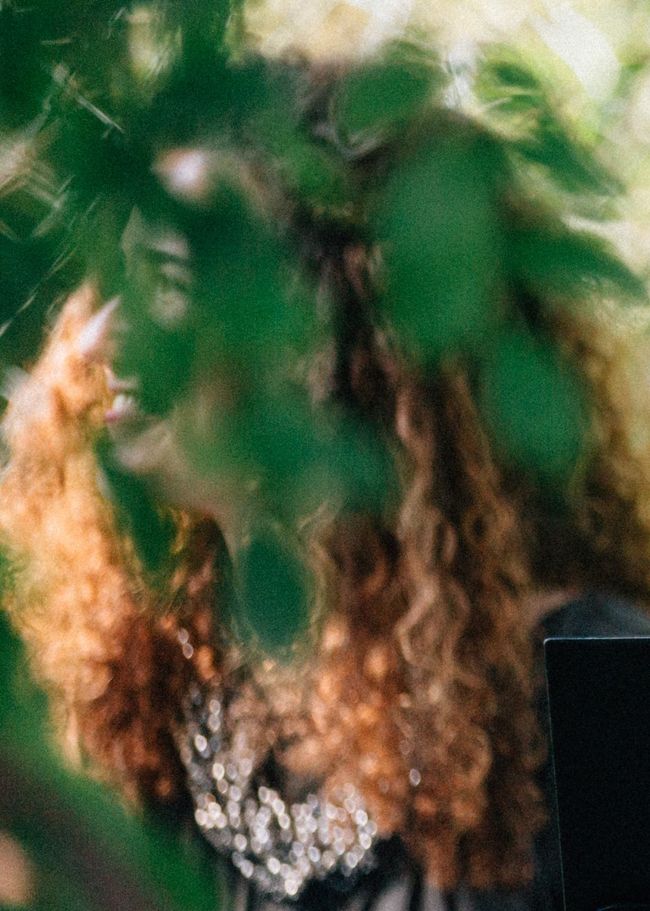Training against drought at the border of Uganda
ተሓቲሙ: 06.11.2022
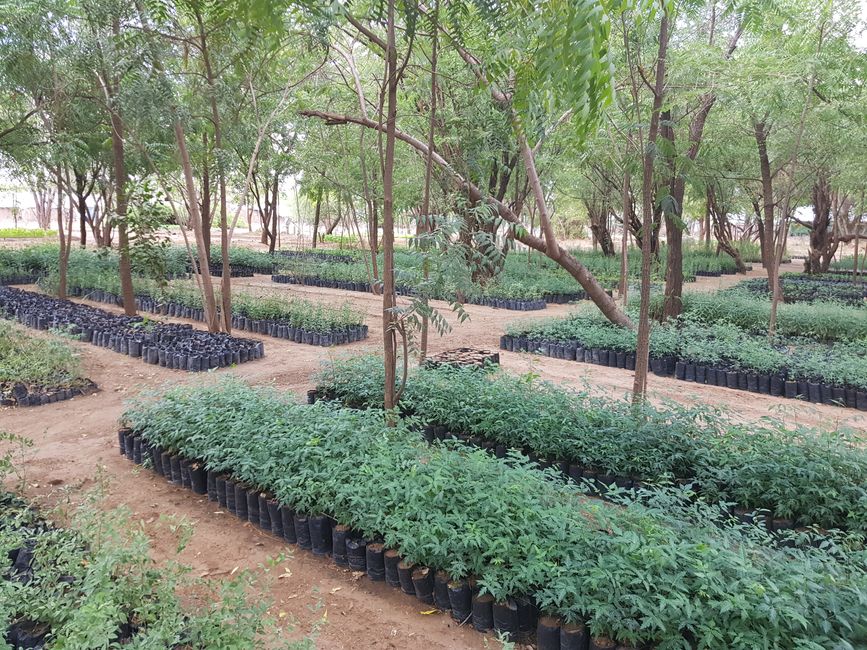
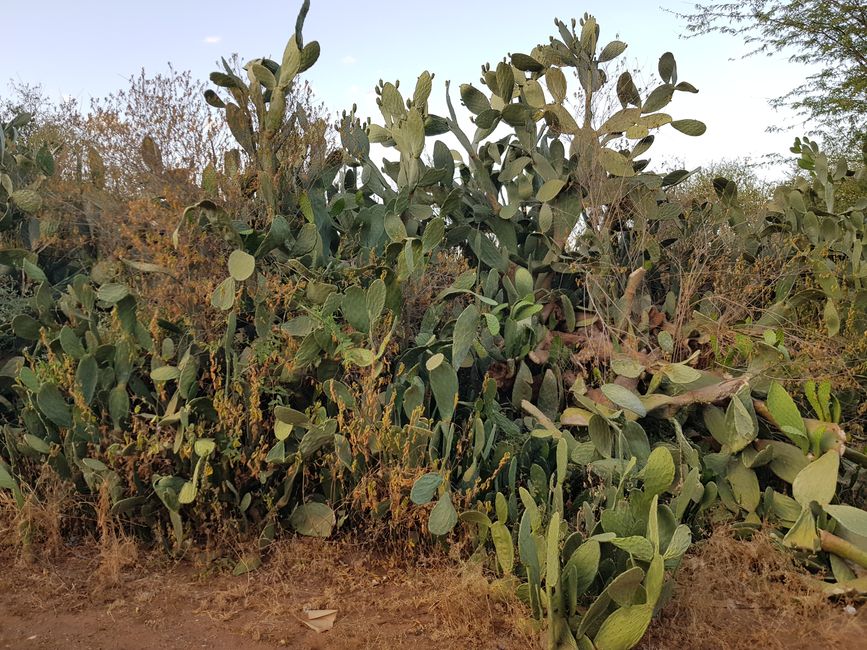
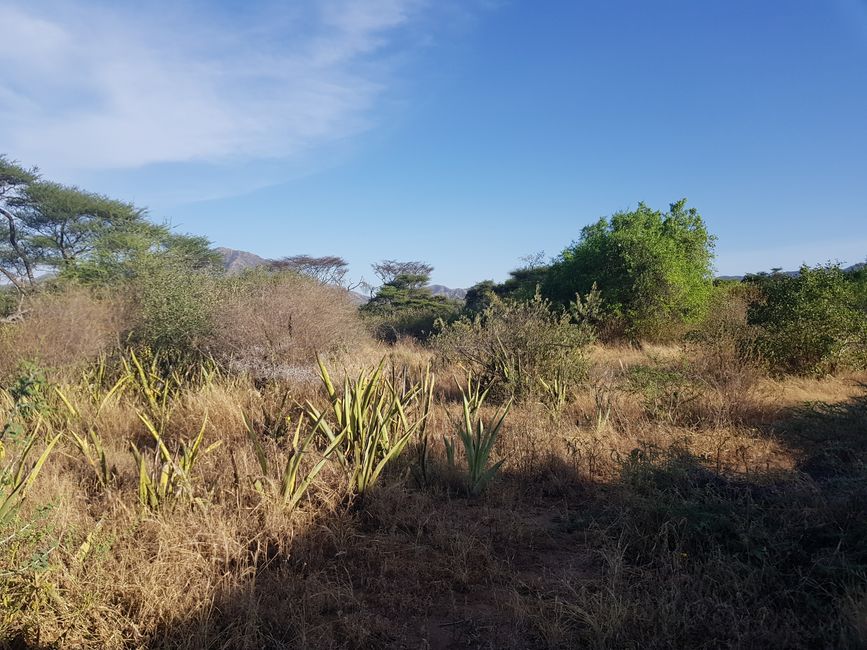
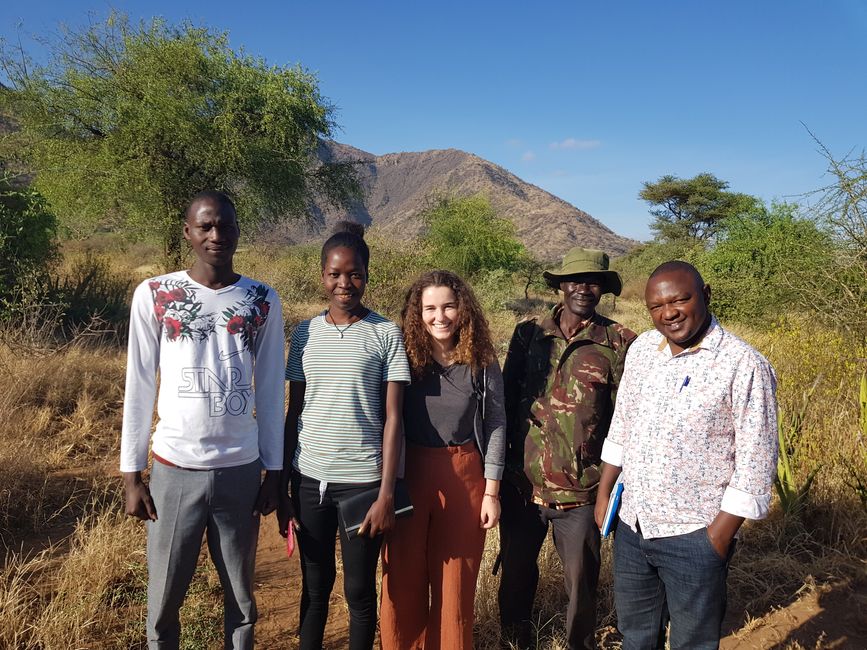
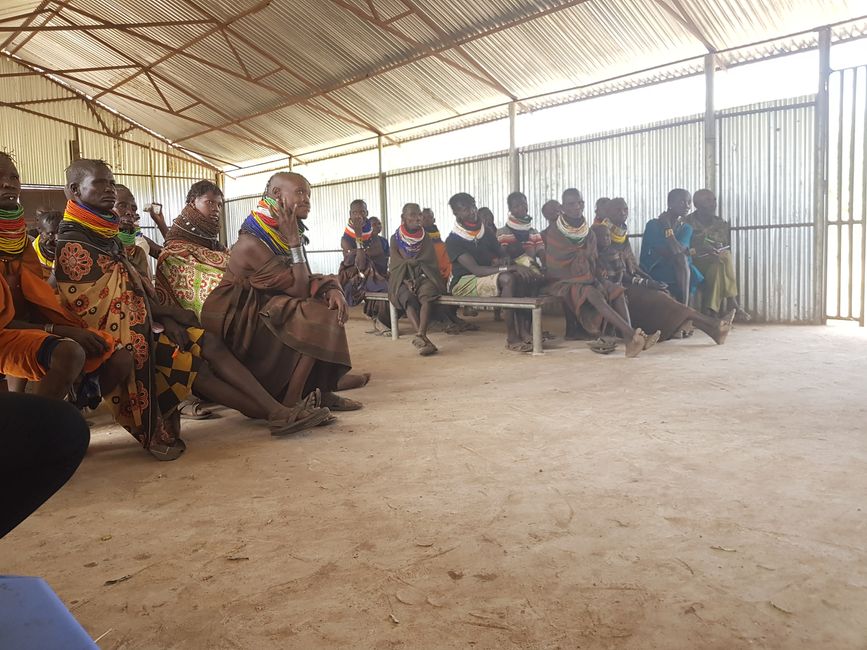
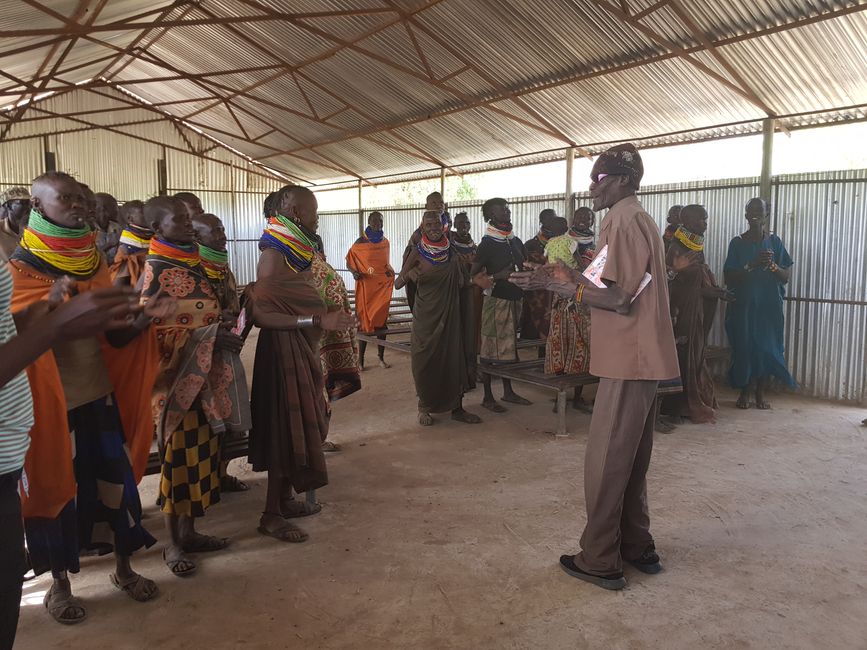
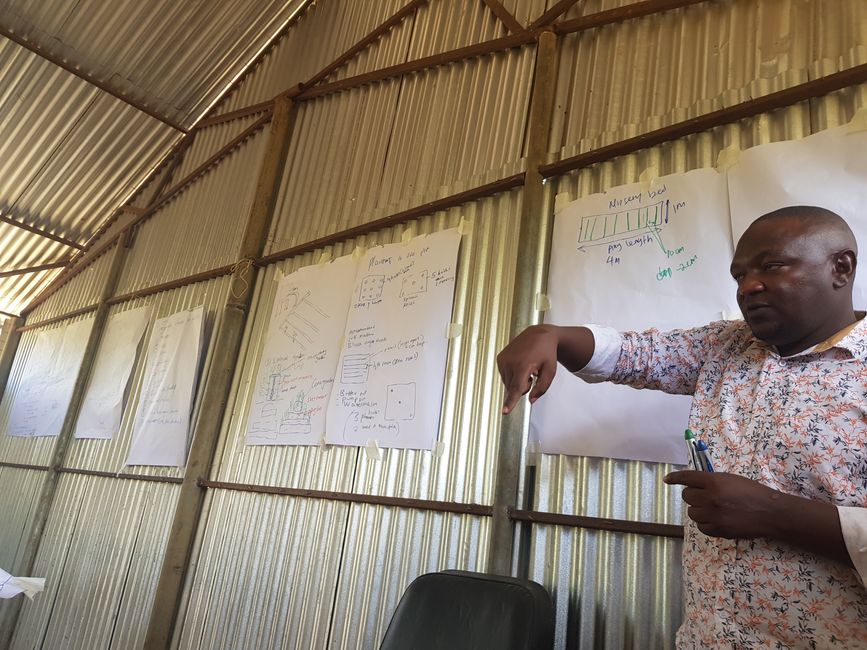
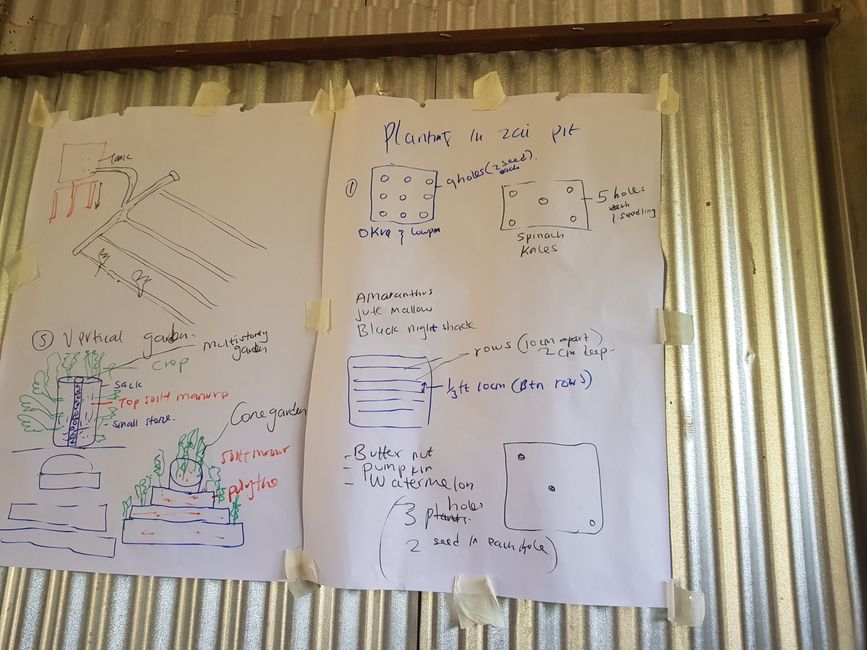
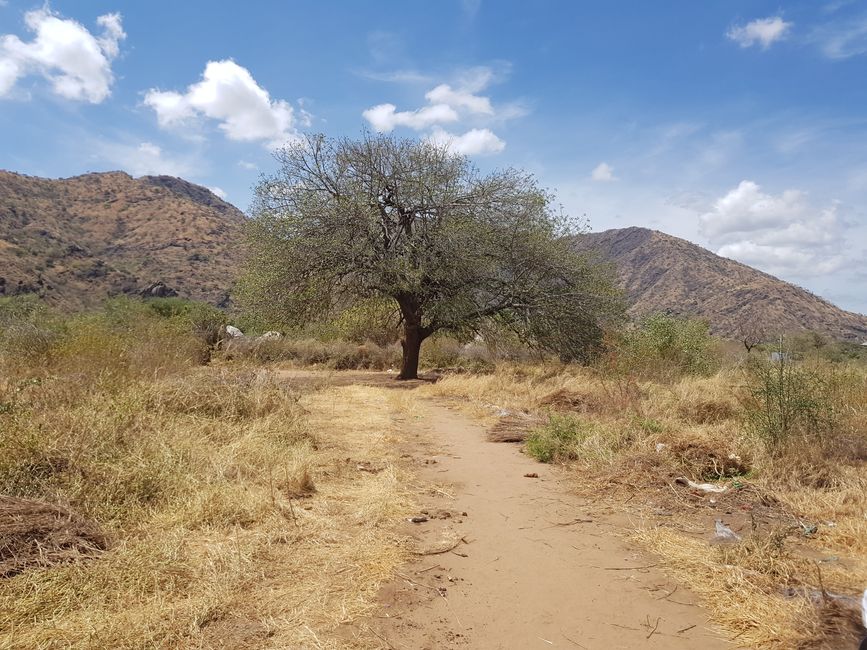
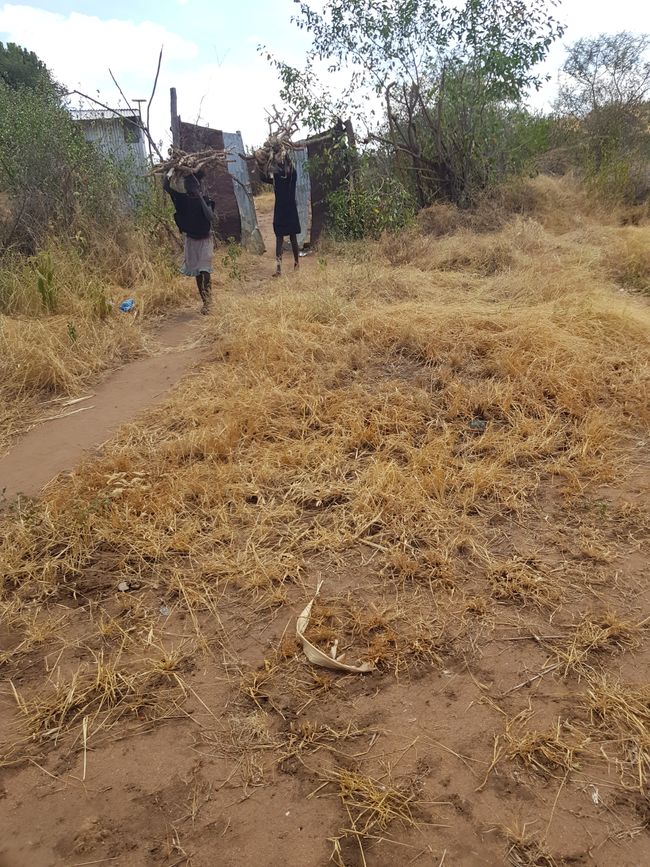
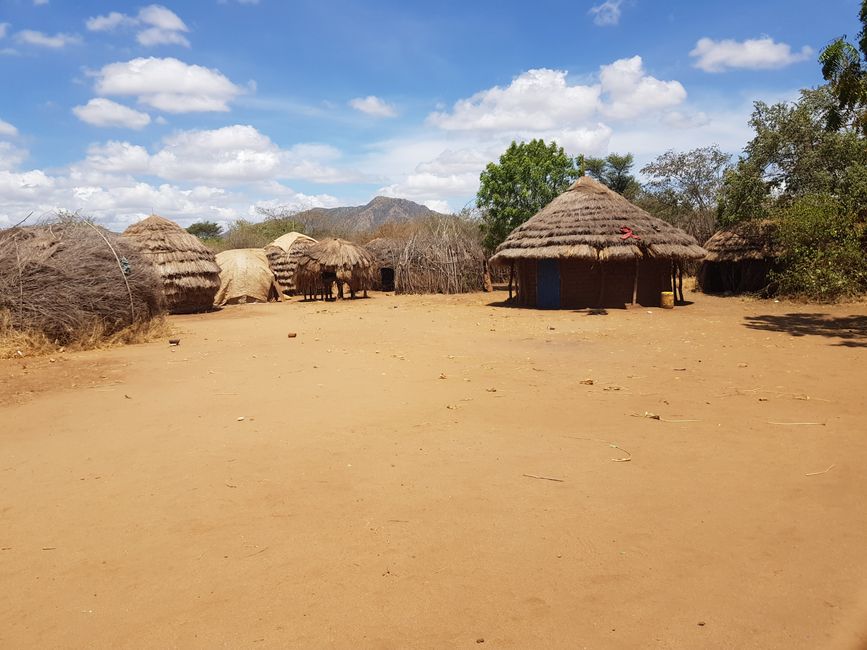
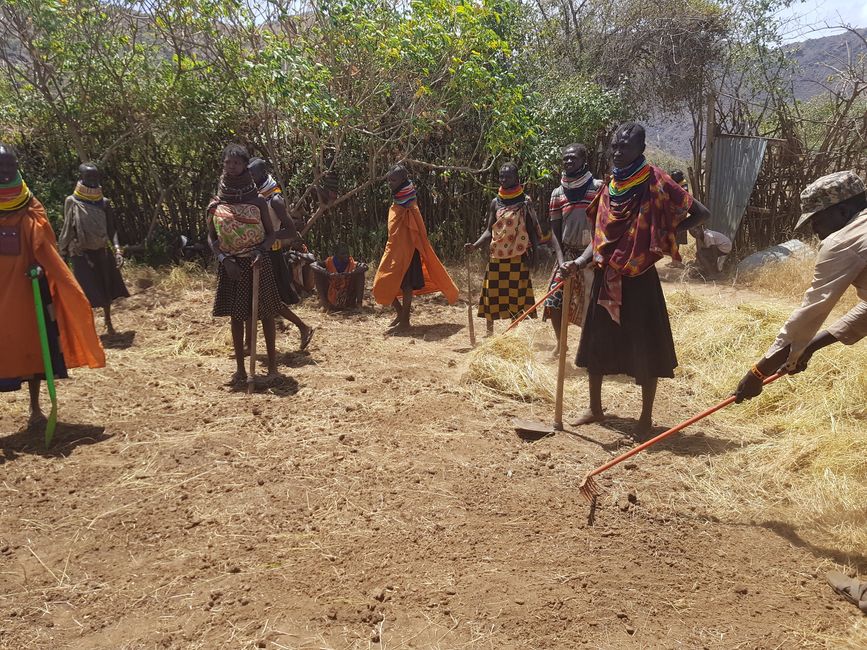
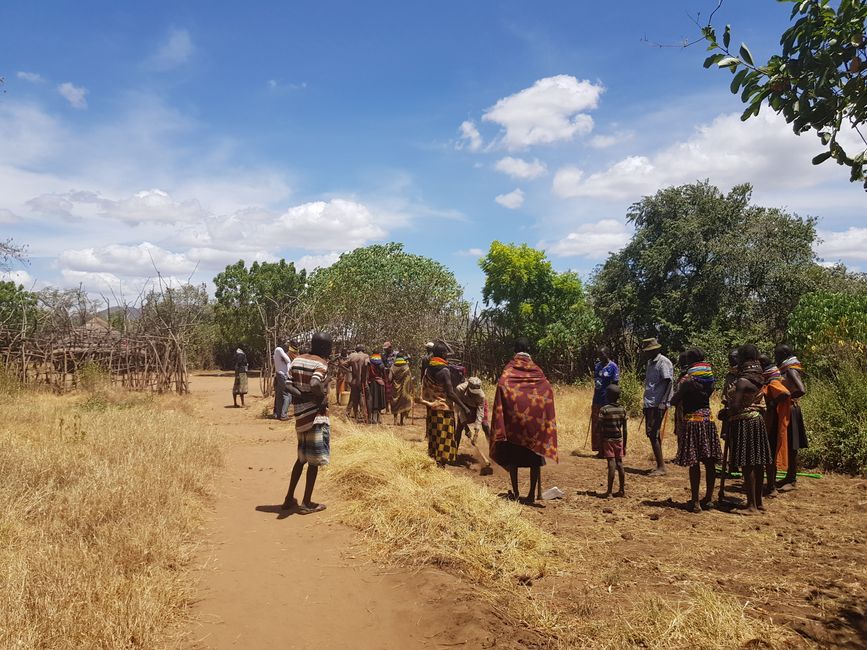
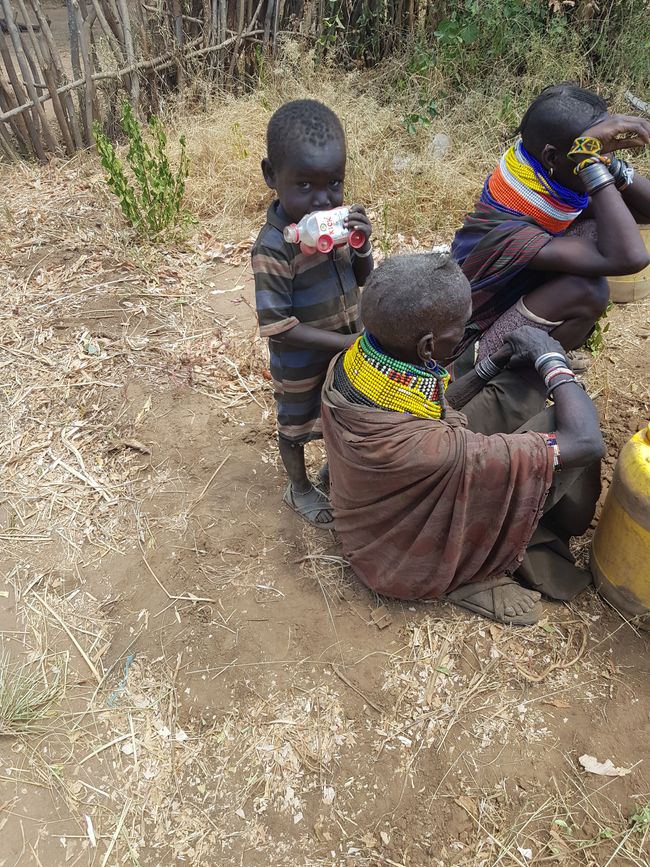
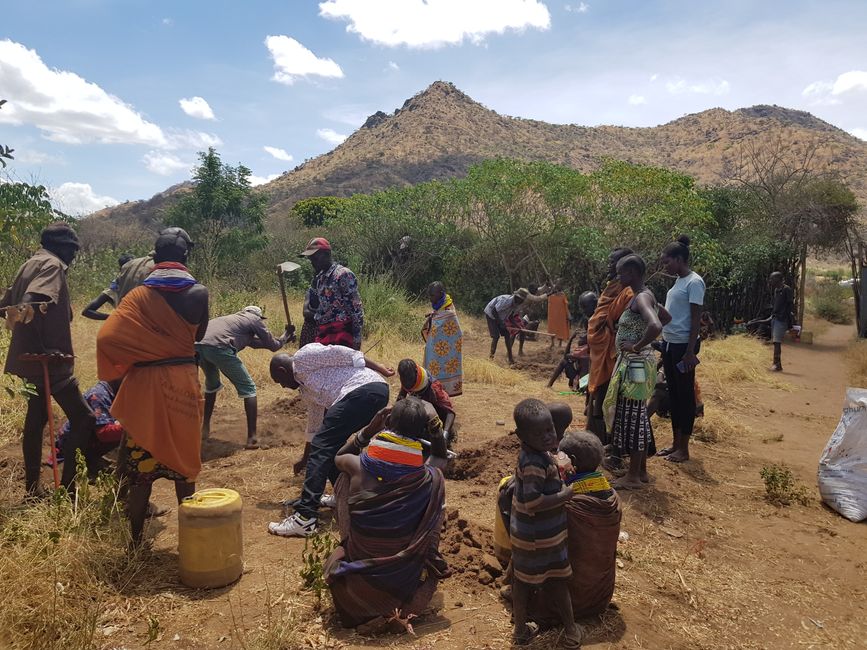
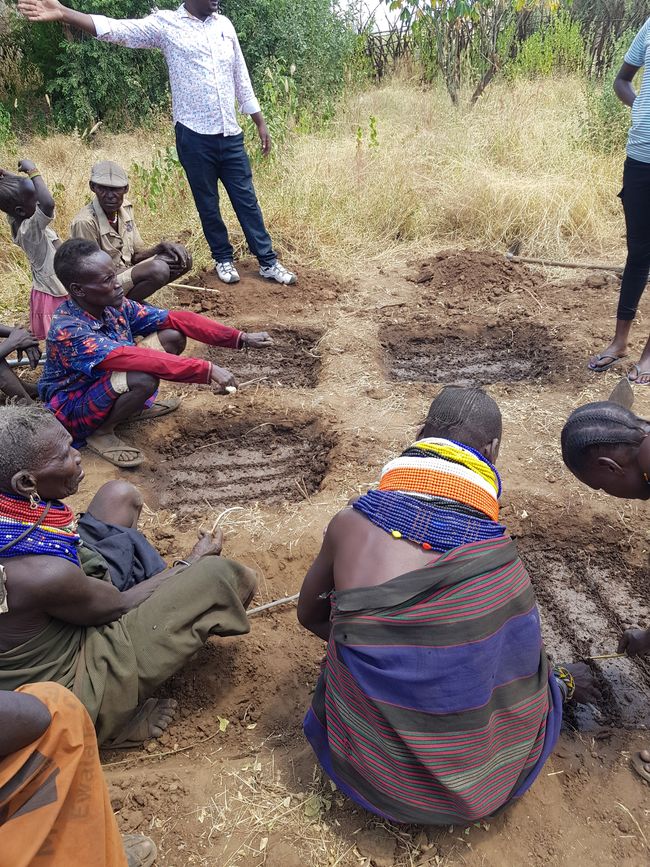
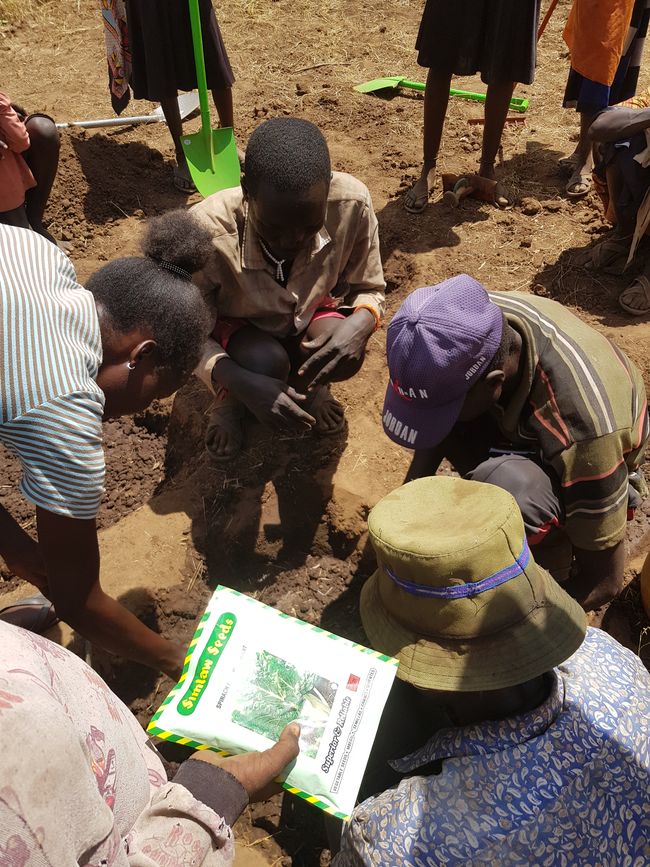
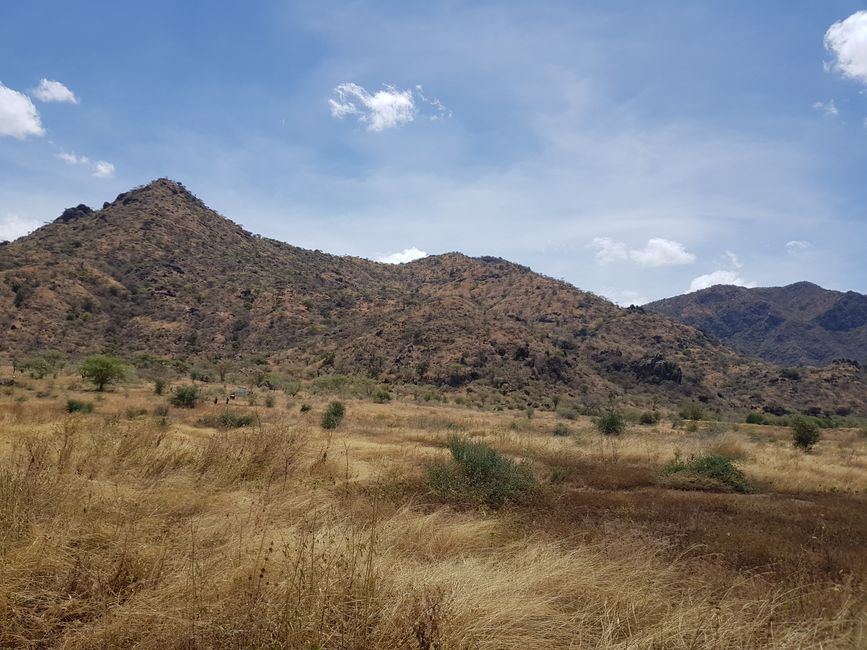
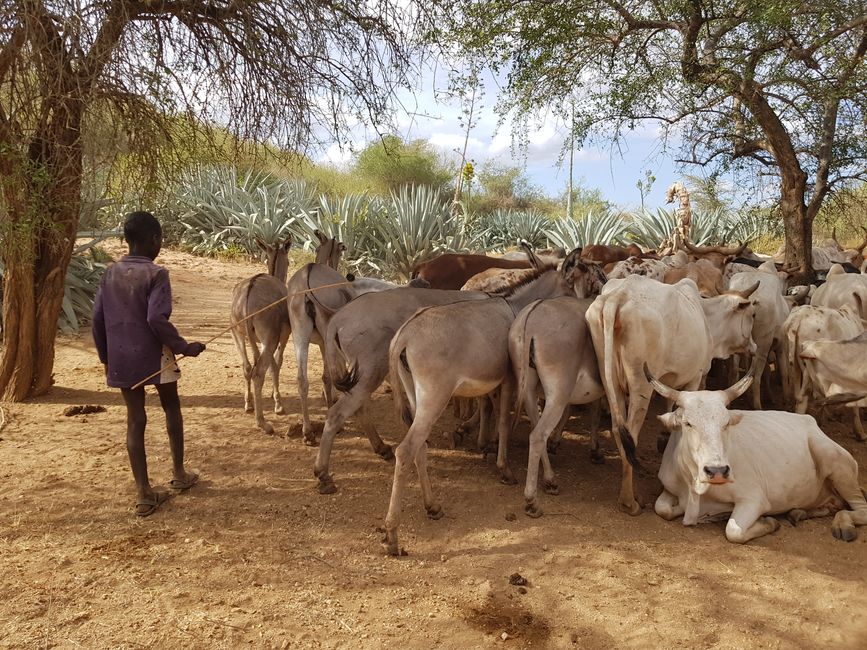
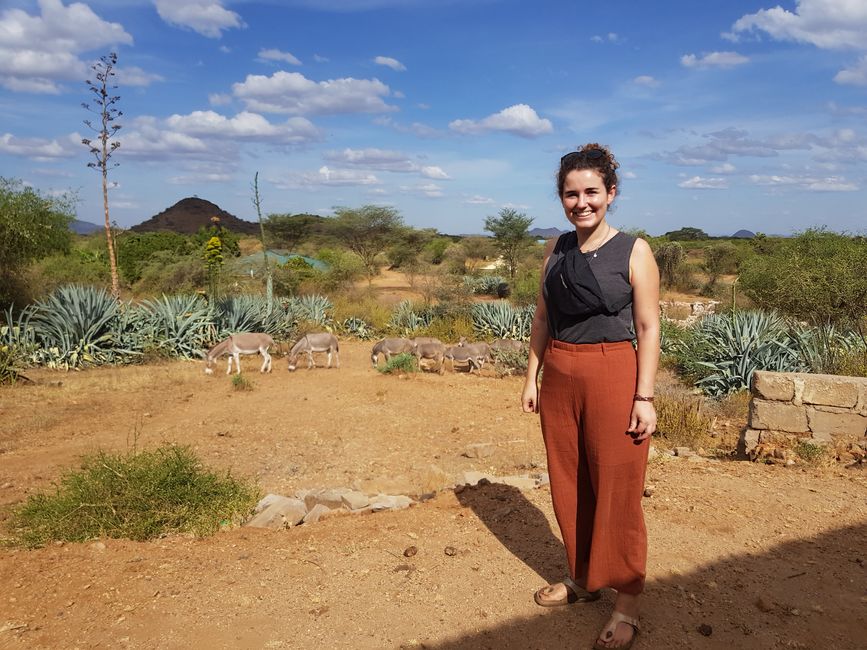
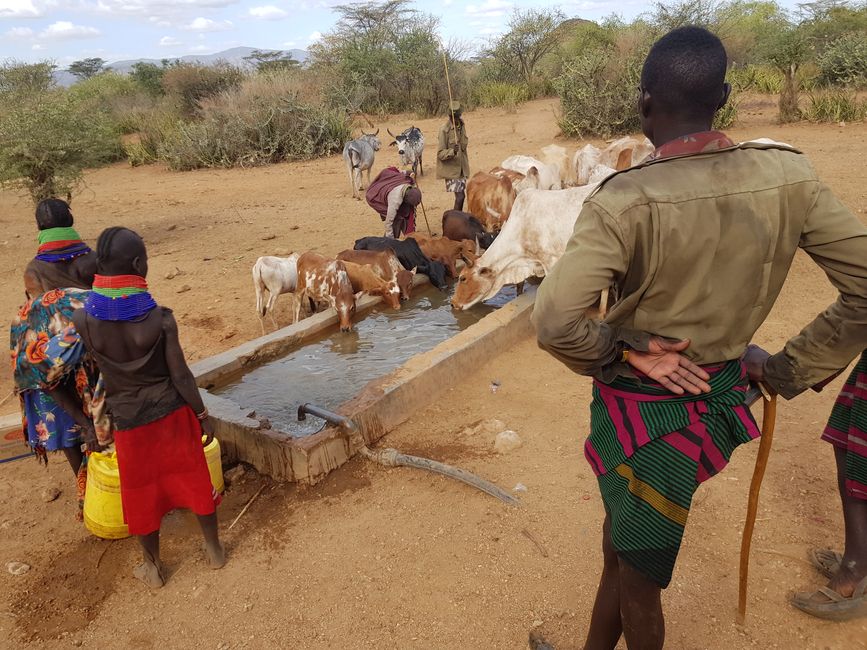
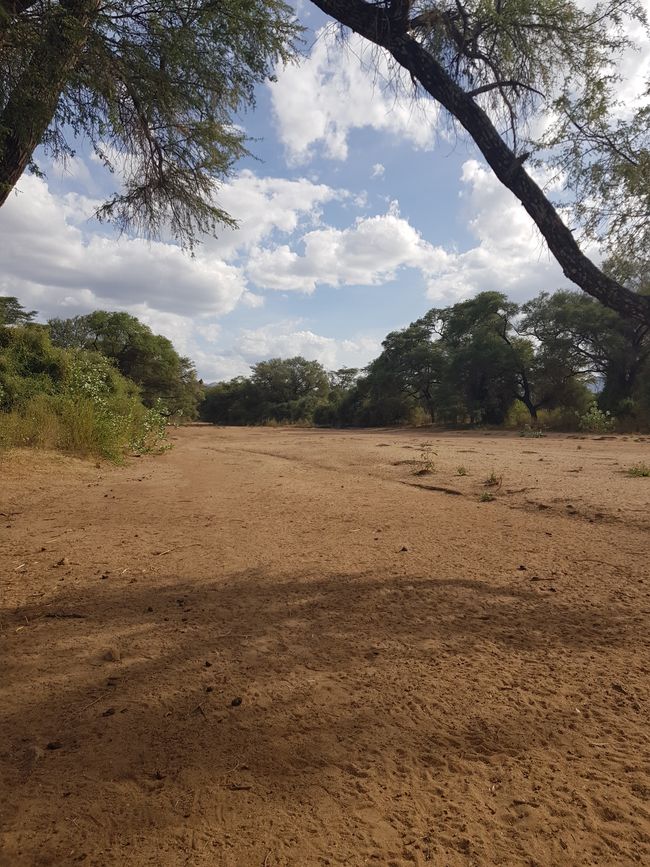
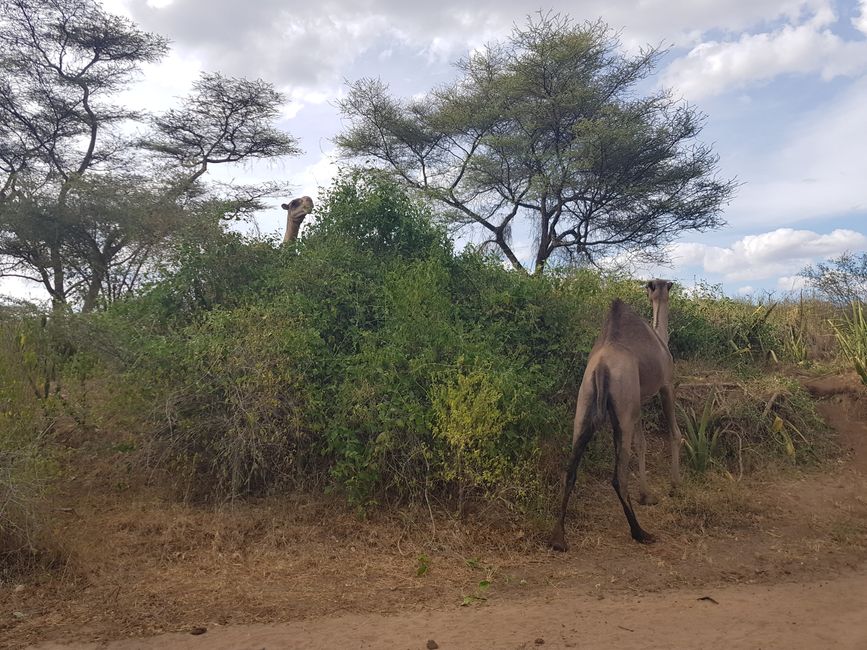
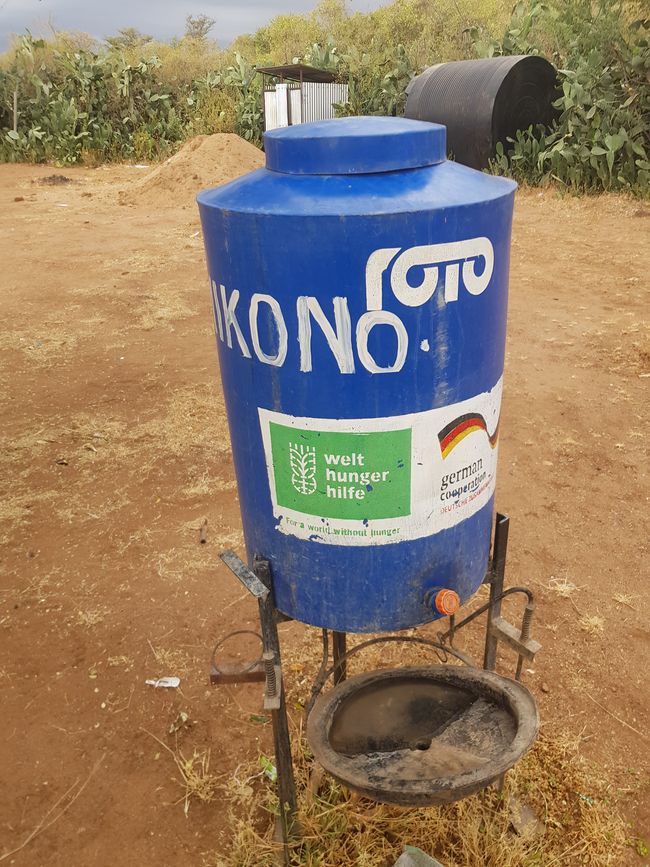
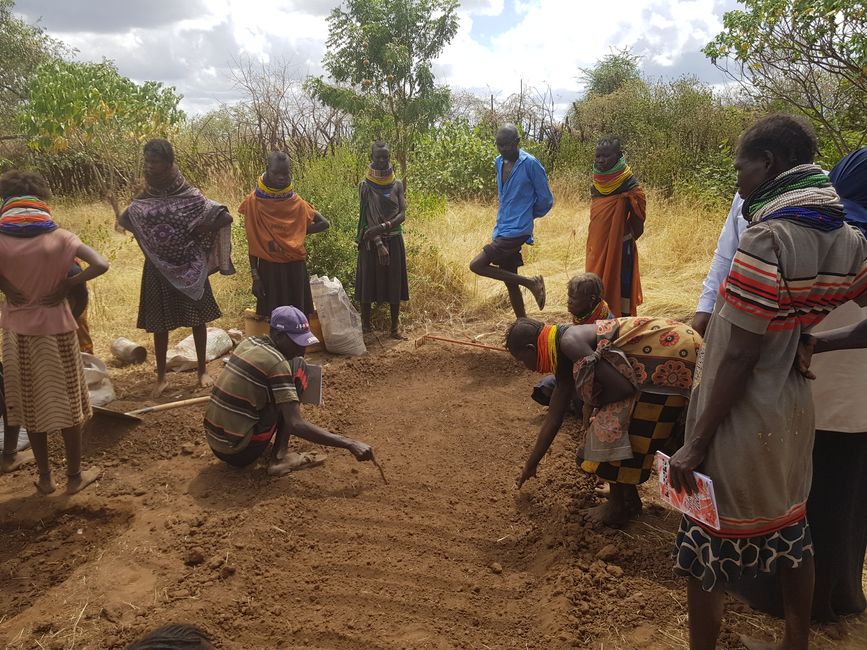
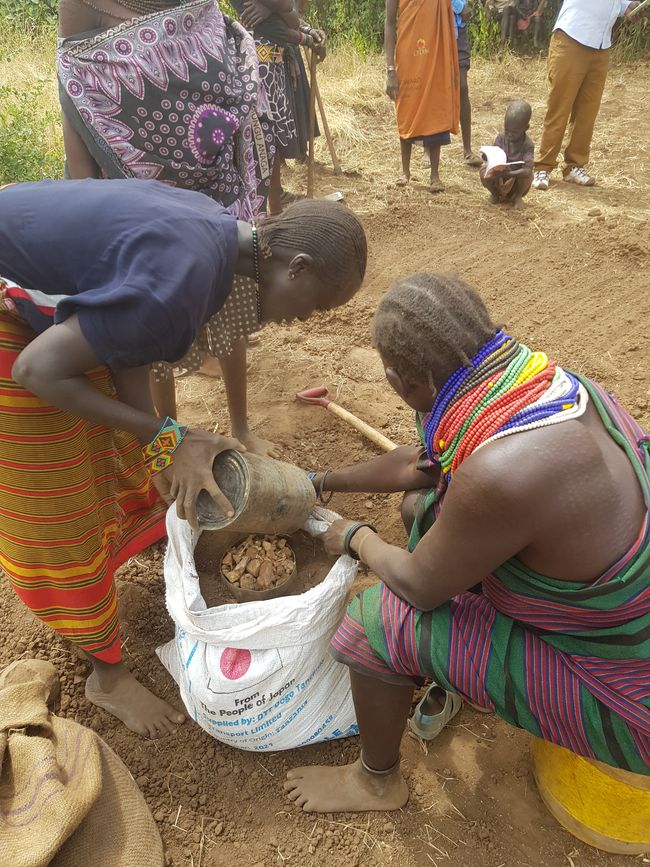
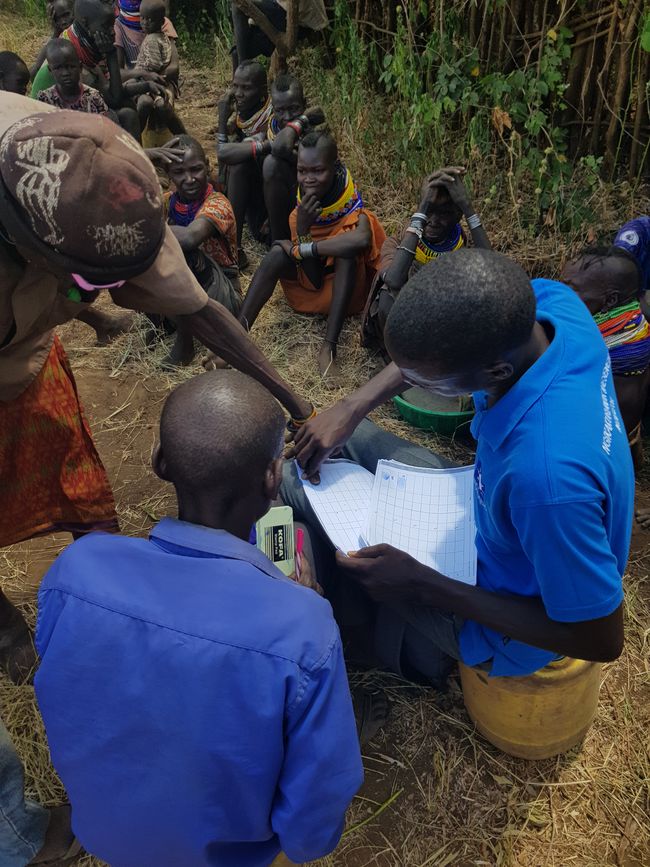
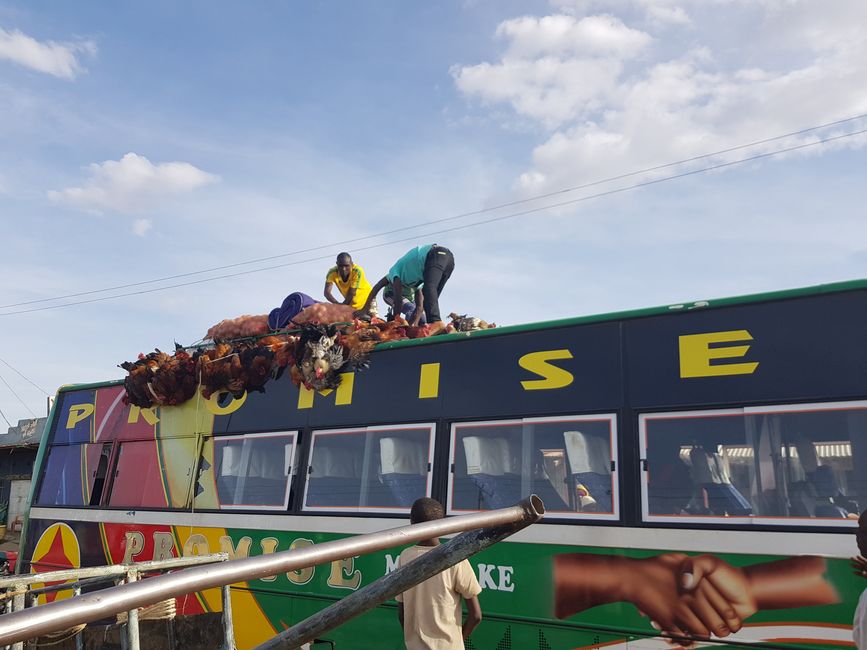
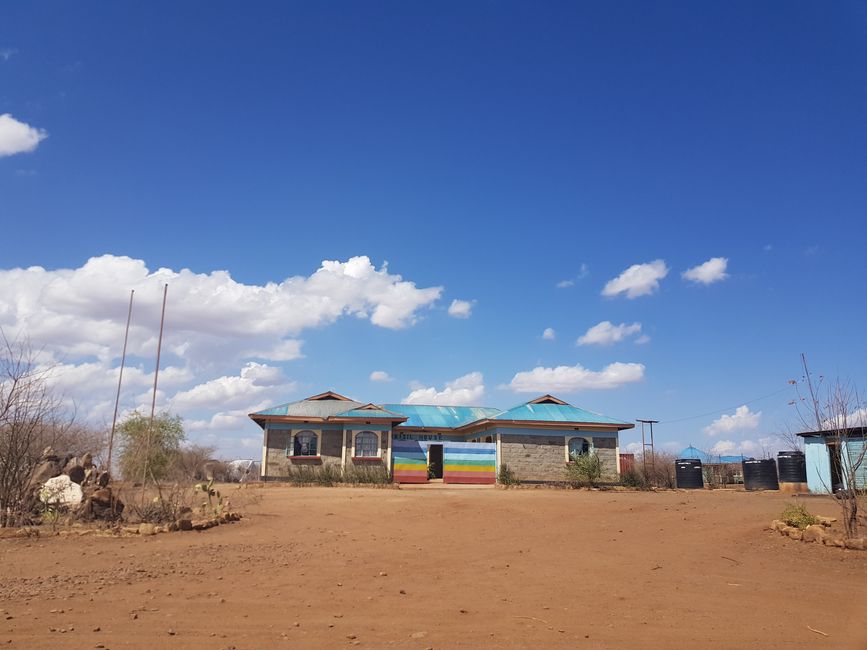
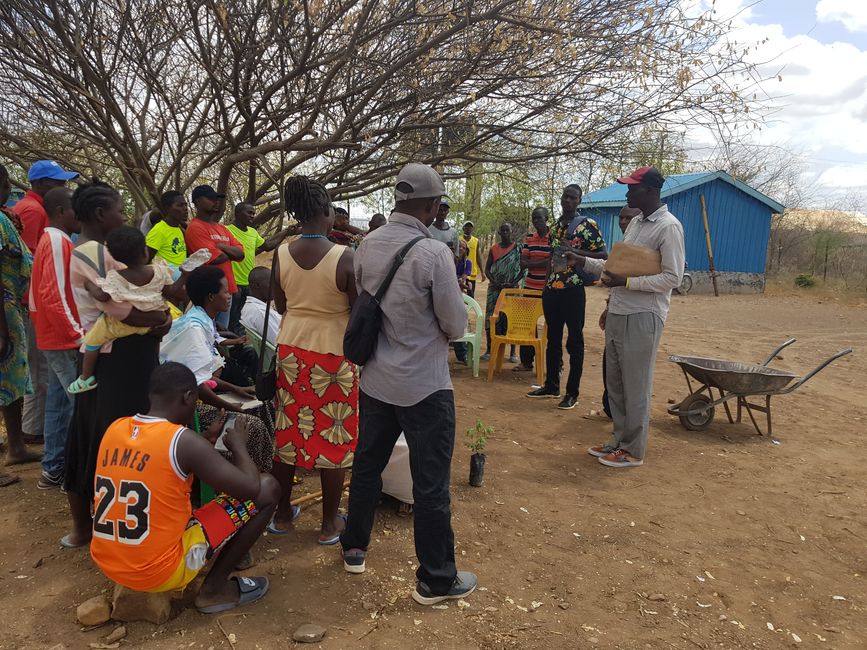
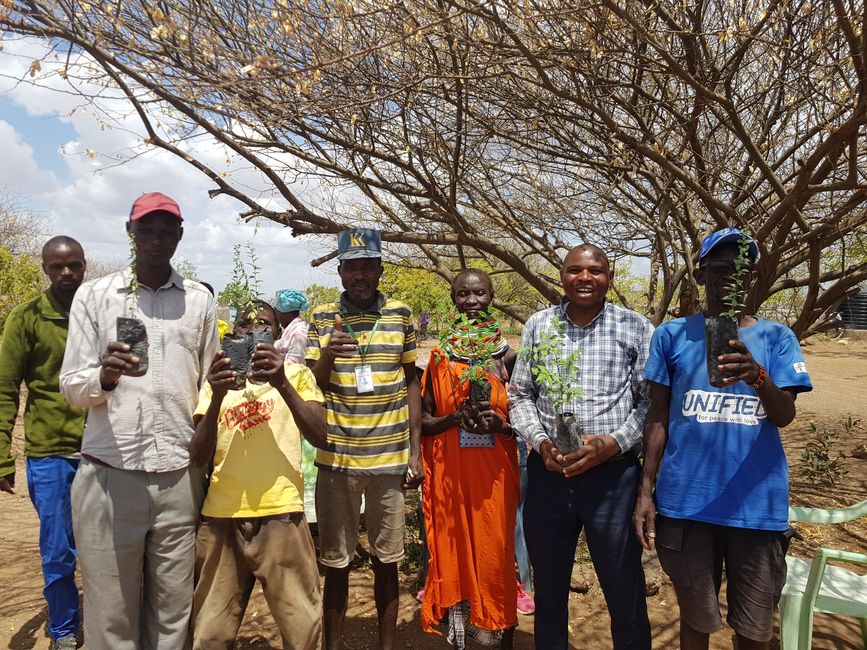
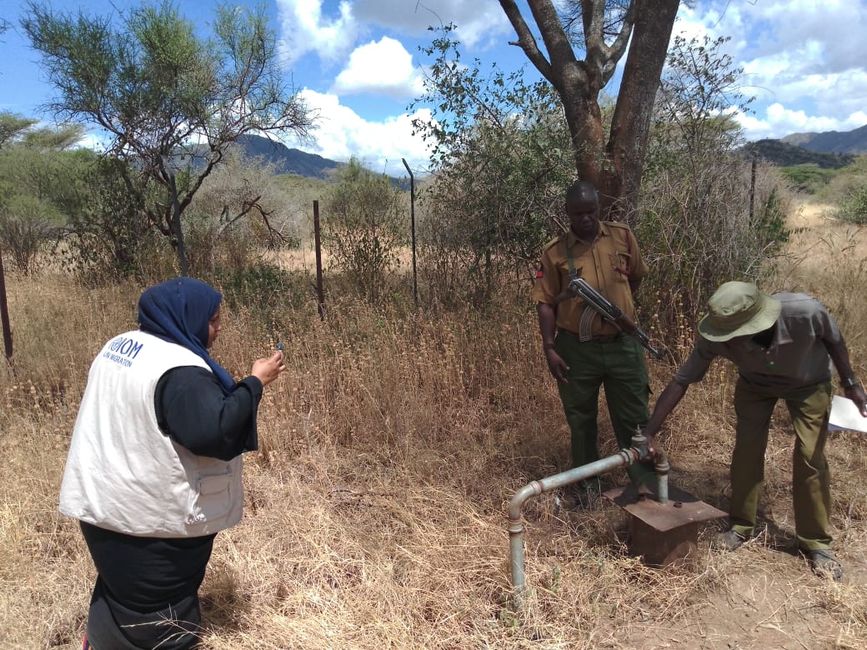
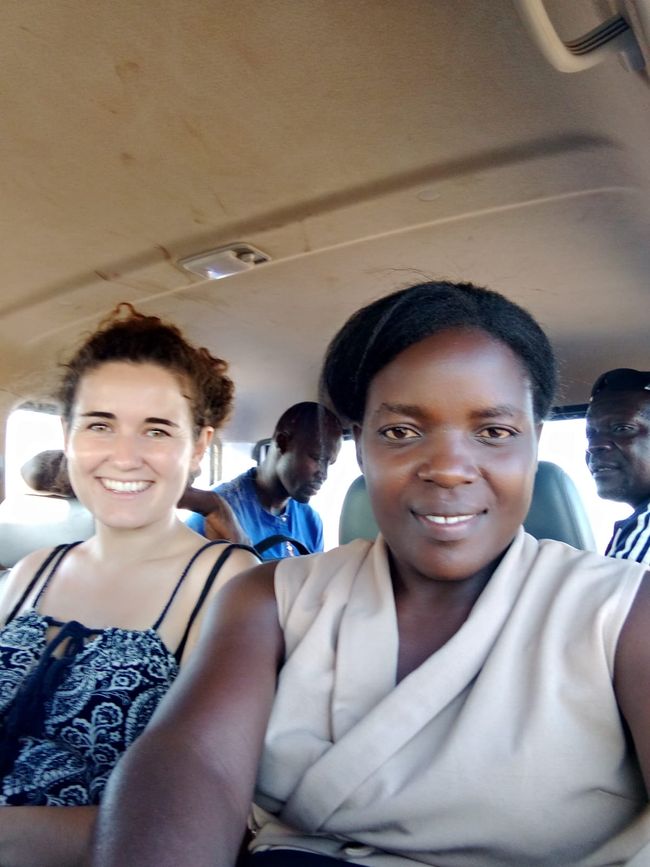
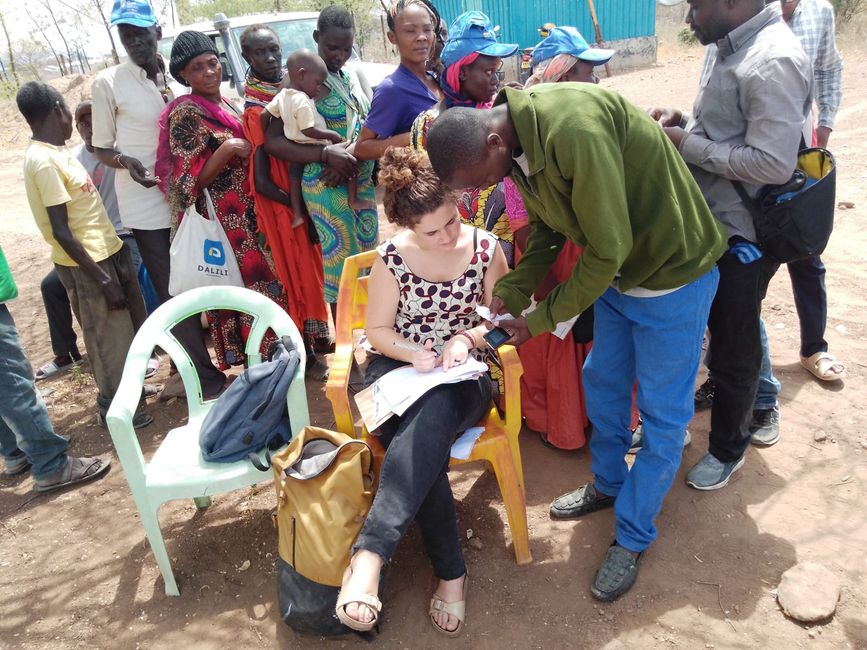
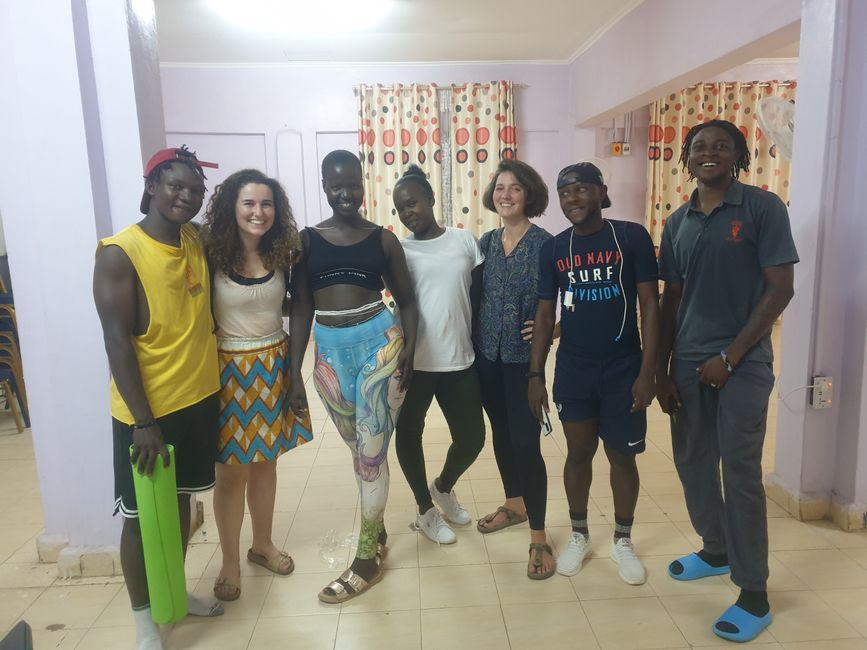
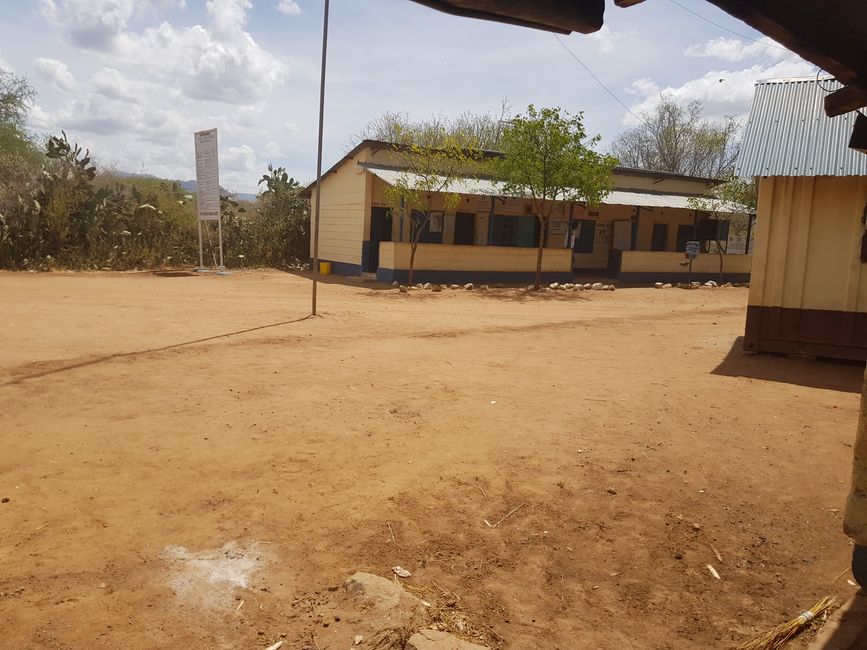
ንዜና ሳብስክራይብ ግበሩ
"Franziska, turn off your torch, if they see you, they'll shoot you!" (for my grandparents: Franziska, turn off the flashlight. Otherwise, they'll shoot you if they see you!)
That was a very emphatic instruction.
I am sitting on the grounds of the clinic in Oropoi, laughing uncertainly. It is 7 p.m. and only the stars light up the night a little bit. Was that serious? I ask. The Raiders could be right in the area behind the clinic. But let's start from the beginning.


I am at the border of Uganda for three days. I am here with LOKADO, the NGO for which I am currently doing an internship. There is no electricity, no paved roads, and no running water here. Most people do not speak English or Swahili, but their own language: Turkana. We spend the night at the clinic and then drive to a different village, Nawountos, during the day. On the way there, I feel like I'm on a little safari. We see dik-diks (such cute animals), a huge family of peacocks, bonobos (or similar-looking monkeys), turquoise large birds... The closer we get to the border, the greener and more vibrant the landscape appears.



In Nawountos, we are conducting a multi-day training for the villagers. Most of them make a living from livestock farming: goats, camels, or cows. Many shepherds carry weapons in the border areas. In the past few days, I have seen some AK-47s (honestly, I have no idea about them, but it could have been). This is because there is often cattle theft across the borders. When Ugandan herders have stolen cattle, Kenyan herders go to Uganda and seek revenge. There seems to be no end to this conflict. People are still losing their lives. They are the Raiders. And they are probably hiding next to the clinic where we sleep in Oropoi. So it's better to turn off the lights, eat in the darkness, pour a bucket of water over yourself under the stars, and avoid drawing attention to ourselves. That's why I also preferred to lie awake in bed with a stomach ache all night rather than walk to the latrine at night.

The goal of our training was to teach herders about climate-smart agriculture. This way, they can become less dependent on livestock farming, which is becoming increasingly difficult due to drought and is forcing them to travel further and move beyond national borders. As a result, there are conflicts between different herders who compete for land and fodder resources, which are very limited. In addition, diseases spread more easily among herds when they come into contact with other herds.
Through climate-smart agriculture, the Turkana can generate other sources of income and grow food crops for their families. In recent years, many animals have died due to drought (hello climate change!) and have pushed the people here into existential hardship. It is also an attempt to bring peace to the border areas. If people no longer cross the border, hopefully the tensions and violence can decrease.
In a theoretical part, an agronomist from the local government taught them how to grow vegetables with little water. Water-saving cultivation methods such as zai pits, vertical gardens in sacks, and cultivation for small plants were taught. Most of the participants could not read or write, so the knowledge was conveyed very vividly. Measurements were taken using the span between thumb and forefinger (10 cm) or a large step (1 m). After the theory part in the church and a few Christian dances and songs in between to lighten the mood, we went to the community garden where we put what we learned into practice so that the knowledge becomes truly profitable. About 35 participants were trained, mostly young women, but also a few men.
Together with a representative from IOM (UN International Organization for Migration), we also visited a water borehole. Water is actually pumped and provided to the people of Nawountos using solar energy. Unfortunately, the motor was stolen and everything was set on fire by Ugandan people. They hoped to drive the Turkana away from the border by destroying the infrastructure.










What else LOKADO does: LOKADO (Lotus Kenya Action for Development Organization) is a local NGO founded in 2003 by Turkana with the motto: Akurwaun ang'iturkana (The socio-economic awakening of the Turkana people). The starting point was to reconcile the Turkana pastoralists with the herders in Uganda and South Sudan. LOKADO now has many collaborations with international organizations such as UNHCR, World Food Programme, GIZ, Welthungerhilfe... and tries to provide support to both refugees and Turkana.
In the first week of the month, food rations are distributed in the refugee camp. They have nurseries and distribute seedlings to refugees and Turkana, allocate firewood, carry out projects on agroforestry and climate-smart agriculture, and conduct surveys and collect data on migration, climate change...




When I'm not out in the field working on various projects, I'm sitting in the office in Kakuma with very nice colleagues. We are picked up at 7:30 a.m. and brought back to the town center at 5:30 p.m. because the office is a bit outside. I help with writing reports and evaluations and submitting applications for new projects, and I can work on my research. I am also asked a lot of questions about life in Germany, prices, poverty, scholarships to study in Europe. About the average age for people getting married and how expensive a divorce is. I had to google a lot and look at German statistics to give them the right information. Many things have surprised them a lot. The image of wealthy Germany with very, very cheap cost of living is firmly rooted. For example, they were very shocked to hear how expensive my (very cheap) shared apartment in Freiburg is.
At work, there is always breakfast for everyone - that is white chai with a lot of milk and even more sugar and crepes or buttered toast. And for lunch, we have ugali, goat meat, and spinach-like vegetables every day. If you want to know more about LOKADO, just visit their website: lokado.org/web


In Oropoi, I was able to collect interesting data for my research on "CLIMATE VULNERABILITY - THE IMPACT OF THE CLIMATE CRISIS ON REFUGEES IN KENYA". It is about the effects of climate change on people who are already displaced and living in camps. But during the preparation for my research, I realized that I want to broaden the focus and also include the Turkana, the host society. They are just as affected by the drought and climate change as the refugees here in Kakuma and need to be included in MAPA (most affected people and areas) of the climate crisis. Kakuma is a city full of international aid organizations that originally focused on the refugees: they receive free food rations, education, healthcare, and support for living space. The Turkana, who are also displaced in their nomadic way of life, do not receive this support (mostly) and are thus particularly affected by drought, water scarcity, loss of livestock, rising prices... That is the starting point of my research. In the coming months, I want to look at how the refugees and the Turkana perceive the drought and climate change, what coping and adaptation mechanisms they have, and also how the international organizations play a role in this.
Climate change is a concept that everyone here is familiar with. However, in an interview with a young herdsman, it quickly became clear that my understanding does not correspond to his concepts. According to him, God decides whether it rains or whether the next drought comes. He also acknowledges that humans are to blame for global warming, for example, when they cut down trees, but the focus is on God's will. The young man has lost most of his goat herd in recent years, but there have been no alternatives for him. He hopes that with the training and vegetable cultivation, he will achieve more food security. There was a lot of hope in his words because he is used to having to adapt to new situations and sometimes not eating for days.
Recently, Welthungerhilfe released the Global Hunger Index. Kenya's situation is considered alarming. East Africa is suffering from the worst drought in 40 years. The short video shows the numbers with which the "hunger status" was calculated: https://www.youtube.com/watch?v=eWxryxoNjw4

In the afternoon, we always had free time and returned to Oropoi because there was no safe place to stay in Nawountos. We walked along the dried-up riverbed and had a picnic next to many camels. I was amazed, but my Kenyan colleagues were not so impressed. The nights in Oropoi were starry and very cool - we even froze, but the cooling was very refreshing after many hot sleepless nights in Kakuma.




Finally, I meet an old man in the only bar in Oropoi. My colleagues tell me he is rich, but he does not know it. He has 5 wives and paid a dowry (Dwory) of 20 camels (€500 per animal), 50 cows (€400), and 400 goats (€60) for each of them. So that would be about €54,000 per wife, times 5! "You cannot buy a woman, it's a sign of respect." It is not about buying and owning the woman, but about showing respect to the parents-in-law for a lifetime. He also owns about 1,000 goats. "He would rather die than sell his herd. It gives him privileges, others respect him for it and listen to what he says..."
Lala salama - sleep well


ንዜና ሳብስክራይብ ግበሩ
መልሲ
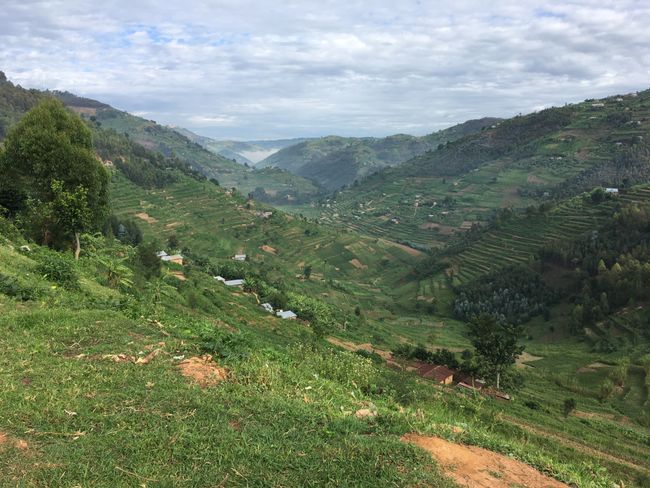
ጸብጻባት ጉዕዞ ኬንያ

